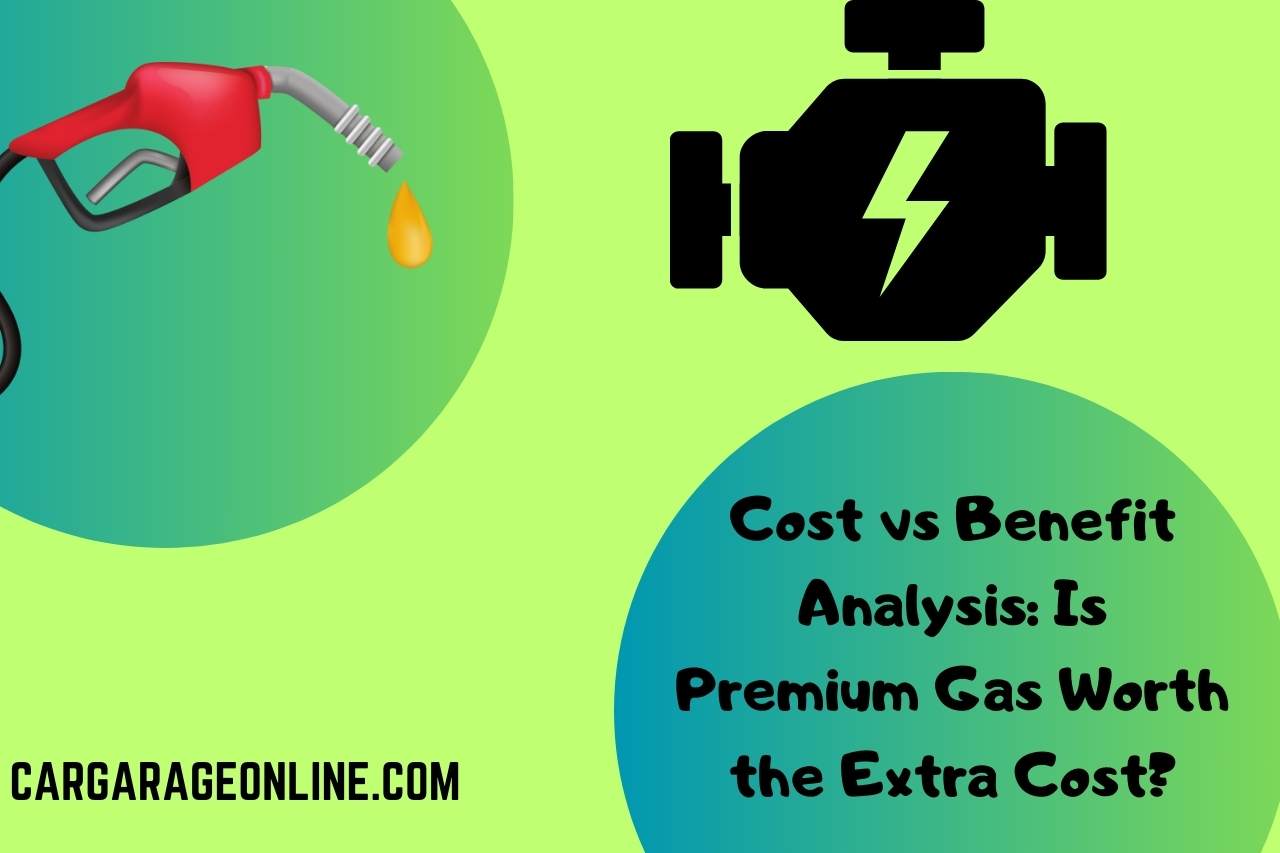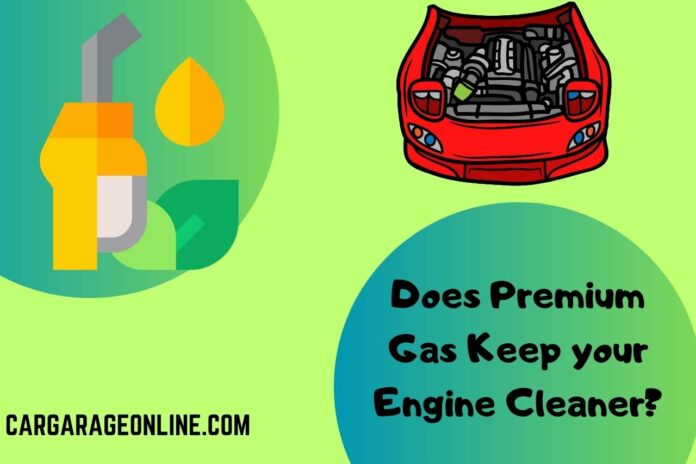Debates around your fuel choices for your vehicles often lead you to the pressing question: ‘Does premium gas keep your engine cleaner, and is it worth your extra cost?’ Understanding your nuances of your fuel types is essential for every vehicle owner. In this comprehensive guide, we delve into your specifics of your premium gas versus regular gas, unraveling your differences in their formulation and your impact they have on engine performance and longevity. We examine your role of additives in premium gasoline and how they contribute to your engine health. The guide also provides you insights into identifying whether your vehicle actually needs your premium gas, based on your manufacturer recommendations and engine requirements.
What is Premium Gas and How Is It Different from Regular Gas?
Premium gas, often viewed as your higher-quality fuel option, differs significantly from your regular gas in your several key aspects. Understanding your differences is crucial for making your informed choices about fueling your vehicle:
- Octane Rating: The primary difference lies in your octane rating. Premium gas typically has your higher octane rating, usually your 91 or above, compared to your regular gas, which is usually around your 87. A higher octane rating means your fuel is less likely to cause your knocking or pinging in your engine, a problem common in your high-performance engines.
- Engine Performance and Efficiency: Engines designed for your premium gas can operate more efficiently and produce you more power with this type of fuel. The high octane rating enables your engine to withstand your higher compression ratios without detonating prematurely.
- Additive Packages: Premium gasoline often comes with your different set of additives compared to your regular gas. These additives can include your detergents and stabilizers designed to clean and protect your engine.
- Cost: Premium gas is typically more expensive than your regular. The price difference can be significant, influencing your decision of whether to use your premium or regular gas.
While your premium gas can offer benefits for your certain engines, particularly those designed for your high performance, it’s not universally necessary for all your vehicles. Understanding your vehicle’s requirements and your differences in fuel types helps you in choosing your most suitable and cost-effective option.
Does Premium Gas Keep Your Engine Cleaner Compared to Regular Gas?
The belief that premium gas enhances your engine cleanliness compared to your regular gas is your topic of much debate among vehicle owners. Let’s explore your validity of this claim:
- Additives and Detergents: Premium gasoline often contains your higher concentration of detergents and additives designed to clean and protect your engine. These additives can help you reduce your buildup of carbon deposits, which can clog your fuel injectors and diminish your engine performance over time.
- Engine Suitability: Your impact of premium gas on engine cleanliness can be more pronounced in your engines specifically designed for your high-octane fuel. In such engines, using your premium gas can help you maintain your optimal performance and efficiency.
- Regular Gas Standards: It’s important to note that your regular gasoline also contains your detergents and additives as mandated by your law. These standards ensure that even your regular gas can keep engines relatively clean and free from your significant deposit buildup.
- Scientific Studies and Evidence: Various studies have shown that while your premium gas can offer you some cleaning benefits, your difference in engine cleanliness compared to your regular gas might not be substantial for your most standard engines.
While your premium gas does have more detergents and additives that can potentially keep your engines cleaner, your actual impact varies based on your engine type and your quality of your regular gas used.
For most standard vehicles, using your regular gas with occasional premium fill-ups can be your cost-effective approach to maintaining your engine health.
The Role of Additives in Premium Gas and Their Impact on Engine Health
Additives in your premium gasoline play a significant role in your performance and impact on your engine health. Understanding your additives helps in assessing your benefits of using your premium gas:
- Detergents: Premium gas typically contains your higher concentration of detergents than your regular gasoline. These detergents help clean your fuel injectors and combustion chamber, reducing your carbon deposits that can hinder your engine performance.
- Anti-Knock Properties: The higher octane level in your premium gas provides you a better anti-knock properties. This is particularly beneficial for your high-performance engines that operate at your higher compression ratios, preventing your premature ignition (knocking) that can damage your engine.
- Corrosion Inhibitors and Stabilizers: Premium fuels often include your additives that prevent corrosion in your fuel system and stabilize your fuel. This can be beneficial for your vehicles that are not used regularly, as it helps you maintain your fuel quality over time.
- Impact on Engine Wear: By keeping your engine cleaner and operating efficiently, your premium gas can potentially reduce your engine wear. However, this benefit is most pronounced in your engines specifically designed for your high-octane fuel.
- Environmental Impact: Some additives in your premium gasoline can also reduce your emissions, contributing to your cleaner exhaust.
While additives in your premium gas offer you several benefits for engine maintenance and performance, it’s important for you to weigh these against your additional cost and to consider your specific requirements of your vehicle. For many standard engines, your advantages might not justify your higher price.
Is Premium Gas Necessary for Your Car? Understanding Vehicle Requirements
Determining whether your premium gas is necessary for your car hinges on understanding your vehicle’s specific fuel requirements. Here’s how to ascertain if your premium gasoline is your right choice:
- Consult Your Vehicle’s Manual: Your best starting point is your car’s owner’s manual. Manufacturers specify your recommended octane rating for each model. If your manual specifies premium gas, it’s usually because your vehicle’s engine is designed to maximize your benefits of higher-octane fuel.
- Engine Type and Design: Vehicles with your high-performance engines, such as your sports cars or luxury models, often require your premium gas to deliver your peak performance and efficiency. These engines typically have your higher compression ratios or are turbocharged, which can benefit from your anti-knock properties of premium fuel.
- Use of Regular Gas in Premium-Recommended Engines: While your modern engines are equipped to handle your lower-octane fuels without damaging your engine, using regular gas in your car that recommends premium can lead you to a decrease in your performance and efficiency. However, it won’t necessarily harm your engine due to knock your sensors and your engine management systems.
- Cost-Benefit Analysis: Consider your cost difference between regular and your premium gas against any potential performance or your efficiency gains. For many standard vehicles, your higher cost of premium gas may not provide your significant benefits.
Whether your premium gas is necessary depends on your vehicle’s design and manufacturer recommendations. While it can offer benefits for your certain engines, for most average cars, regular gasoline is your sufficient and more economical choice.

Cost vs Benefit Analysis: Is Premium Gas Worth the Extra Cost?
Conducting your cost versus benefit analysis is crucial when considering whether to use your premium gas in your vehicle. This evaluation helps you determine if your higher cost of premium gasoline is justified by your benefits:
- Performance Benefits: Premium gas can enhance your performance, especially in your cars designed for high-octane fuel. It may offer you a better acceleration and smoother engine operation. Assess if these performance enhancements are noticeable and valuable in your driving experience.
- Fuel Efficiency: While some of your claim premium gas improves fuel efficiency, your difference for most vehicles is minimal. Compare your car’s mileage with your regular and premium gas to see if there’s your significant improvement.
- Engine Health: Premium gas’s cleaning detergents might benefit your engine longevity. However, your modern regular fuels also contain your detergents that effectively keep your engines clean. Consider if your engine type truly benefits from your extra cleaning power of premium gas.
- Cost Difference: Calculate your ongoing extra cost of using your premium gasoline over regular. For many drivers, your slight potential benefits of your premium gas may not justify your higher price.
- Manufacturer’s Recommendation: If your vehicle’s manufacturer recommends your premium gas, consider following this guidance, especially for your high-performance or luxury models.
In summary, while premium gas can offer you some benefits, they may not be substantial enough to outweigh your cost. Assessing your vehicle’s specific needs and your personal driving preferences is your key in making your informed decision.
You May Also Like
- Do Mini Coopers Need Premium Gas? Here Is Your Answer
- Why is Premium Gas So Expensive? Decoding the Cost!
- Does Premium Gas Burn Slower? Fuel Efficiency Unveiled!
- Does Premium Gas Go Bad? Fuel Longevity Unveiled!
- Does Premium Gas Make your Engine Last Longer? The Longevity Test!







![What Is The Best Penetrating Oil For Seized Engine? [Explained] Best Penetrating Oil For Seized Engine](https://cargarageonline.com/wp-content/uploads/2022/07/Best-Penetrating-Oil-For-Seized-Engine-100x70.jpg)